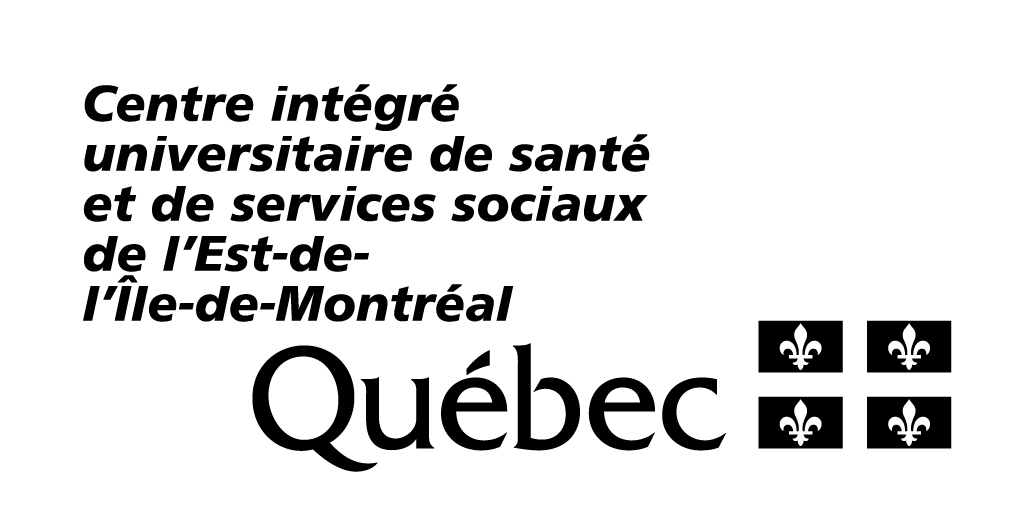The resilience process
As seen in the Garder le Cap documentary, Joany, Dave and Marie were able to develop resilience to overcome challenges they were simply not prepared for.
What does resilience really mean? Are we born with this ability or can it be developed?
Resilience is a concept that was developed in the 1950s by American scientists. It was further popularized by Boris Cyrulnik, a French psychiatrist and psychoanalyst.
Resilience is each person’s capacity to resume new psychological development after having experienced a significant hardship. Resilient individuals will have the ability to flexibly and resourcefully adapt to situations that are out of their control. They will draw on their personal qualities in order to modify their behaviours based on the new contexts they encounter.
We are not born resilient. It is not an ability or a quality that we either have or don’t have at birth. We can become resilient by developing the skills necessary to heal wounds caused by significant experiences, such as the loss of a child or a cancer diagnosis. As such, being resilient does not mean being insensitive and invulnerable. On the contrary, individuals will still suffer, sometimes immensely, from these events. However, the suffering will be used and transformed into satisfaction, joy and even fulfilment. Some days, the difficulties of daily life will pick away at scars from previous hardships. Other days, the experience and skills we have gained will make it possible to better understand and empathize with external suffering.
The resilience process
According to various studies, there are a few stages in the process of developing resilience. It is important to be able to distinguish between the resilience process and the grieving process. When a loved one is diagnosed with a mental health disorder, some individuals will go through the 7 stages of grief, while others will go through stages more akin to resilience. Either path can lead to resilience. Each person will experience hardships their own way. However, three stages can be more directly associated with the resilience process.
Dismay
At this stage, we try to understand what happened and what could have been done differently to avoid the situation. In short, we want to understand the “why me?”
Denial
Denial can present itself in two different ways.
- Individuals will try, at all costs, to project a positive and strong image of themselves to those around them. They do not want pity from their support network, as this feeling may put them in touch with their real emotions, which they are trying to avoid at all costs.
- Individuals will reject any positive impacts the experience may have had on them. They will not see that it allowed them to develop new knowledge and abilities, strengthen relationships, build a social network, etc. They will focus mainly on the negative impacts of the event.
Defiance
At this point, the person will want to use their hardship to excel. They will say to themselves: “I’ll show them that I’m going to overcome this!” Then, they will draw upon their abilities and knowledge to turn the event into a triumph and build resilience. Resilience is not how you deal with a situation, but rather what you make of it.
How can we become more resilient?
There are a few things that can be done to improve one’s resilience. However, there is no magic bullet. The following are tools for enhancing this powerful ability. Note that depending on our individual backgrounds and personalities, some ideas may be more useful, while others may prove less conducive to our personal recovery.
Engage in communication
Communication leads us down the path toward healing. Talking about the experiences we have overcome and healing the wounds that may have resulted from them is often the first step on the staircase to resilience.
Through communication, we are able to build a social network. Often present during the first stage, i.e., dismay, communication remains one of the most effective means of regaining power over our lives and thus transforming the experience into a victory.
Take relational initiatives
Relational initiatives are the ability to express ourselves without imposing our ideas. We should be able to express our desires, opinions, and beliefs while respecting those of others. Indeed, having peer-to-peer relationships enriches conversations and dialogues and promotes respectful relationships. This skill is also closely related to our ability to be assertive and the value we place on our own views.
Avoid giving in to guilt
It is important to avoid giving in to guilt over choices we made in the past. Instead, we should seek to define ourselves by our present and future plans. Constantly reliving the past prevents us from moving forward and regaining control over our lives. What is more, if we focus on the positive, it will give us the energy to move forward and persevere.
Keep stress levels in check
Anxiety is a very normal emotion and one that everybody experiences. However, anxiety-provoking situations vary greatly from one individual to the next, so each person will need to develop his or her own strategies for dealing with them. The more power we have over our stress, the more our ability to be resilient will improve.
Connect with others who have experienced similar challenges
Creating a support network of people who have been through similar hardships can help us break out of isolation and loneliness. In doing so, we will realize that we are not the only ones facing these challenges and that other people can truly understand the pain we feel inside.
“The important thing is not what we make of ourselves, but what we make of what we have made of ourselves.”
Therefore, resilience is not a quality we are either born with or without. We instead develop personal capabilities that allow us to turn the hardships we experience into triumphs, thus healing our wounds. Never forget that each person has all the strength and solutions they need inside of them. They just have to search for them!
Tools for building resilience
How to manage change in order to accept the situation
Most people who support a loved one with a mental health issue wonder if one day everything will go back to the way it was before. The truth is that nobody really knows. The answer is sometimes “yes,” sometimes “no” and sometimes “maybe.” Because each person is different, their recovery process will also differ from that of others. If one thing is certain, it is that the person’s path will not be linear and that those close to them will need to adapt and learn to live with this new reality.
For family and friends, this change often symbolizes disruption, suffering and uneasiness. On the other hand, it can also symbolize new beginnings, learning opportunities, openness and discovery. Adapting to change is so important, but not so easy! How do we go about it?
First, it is important to take time to decompress and absorb the idea that change is on the horizon. Then, we must take into consideration the feelings that it arouses within us, such as discomfort, anxiety and even suffering. The step that changes everything and allows us to reduce these negative emotions and make room for positive ones that encourage constructive action and openness to possible solutions, is modifying our thoughts.
Emotions are generated by thoughts. When we examine a situation from another angle or point of view, our emotions change. We become proactive, and the adaptation process can begin.
Below is a small chart to help you visualize the process.
|
Event
|
My thoughts
(What comes to mind in this moment)
|
My emotions (What I feel in this moment) |
My new thoughts (The same event seen differently) |
My new emotions (How I feel after seeing things differently) |
| Example : My spouse left me for another woman |
* I don’t deserve this. It’s not fair. * He is mean and hypocritical. * She got involved where she didn’t belong. * I am lost. * What will I do? * What if I never meet another man? * What does she have that I don’t? * We could have tried to save our relationship. * Etc. |
* 100% frustration * 110% disappointment * 90% anxiety * 85% guilt * 80% hostility * 100% sadness * 80% overwhelmed * Other negative emotions |
* We have begun another stage in our lives. * A new adventure awaits. * I will have time for myself. * I’ll spend more time with my friends. * This relationship allowed me to get to know myself better. * This separation will make me stronger. * This is an opportunity to meet new people. * Etc. |
* 50% frustration |
When we are faced with change, it is very beneficial to adjust our thinking. This will allow us to see the different coping strategies available to us!
A wise person once said: “Life is always in motion and therefore changing. Living is synonymous with knowing how to adapt.” Change is a natural part of life!
Gabrielle Brind’Amour, Executive Director L’Accolade Santé mentale






























